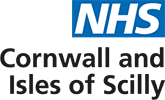At home service supports people with COVID-19 and other conditions
A simple piece of medical kit is being used in a novel way to treat people at home rather than in a hospital bed.
The device, called a pulse oximeter, is provided to positive patients in the community who are at risk of serious illness or recovering from COVID-19.
The small electronic device clips on to the finger to measure the patient’s pulse and check the level of oxygen in the blood. Although some consumer ‘smart’ watches now feature a similar function, they may not be considered to be medically accurate.
People are referred into the service either by their GP or on discharge from hospital. They are contacted by a dedicated digital clinical team who provide information that enables them to manage their illness.
Patients are told how to monitor their condition and where to get help if it gets worse. As part of their monitoring routine, they have regular access throughout the day to skilled clinical staff who can review the readings via an app or over the telephone. The oximeter enables people to quickly pick up on changes in their condition; for example feeling tired or confused due to a drop in their blood oxygen levels.
This approach enables people to stay monitored at home, avoiding the need to attend GP surgeries or hospitals for routine reviews. Importantly, any potential change in a person’s condition can be detected swiftly. This means they can quickly get the medical support they need before becoming very unwell. As a result, when they are required, hospital stays are usually shorter and people’s outcomes are improved.
Patient and carer feedback of the oximetry at home service has been extremely positive, describing it as ‘invaluable’ and ‘reassuring’.
The service is among several of its kind that are helping to manage the continued pressure across Cornwall and the Isles of Scilly’s health and care system. Other remote monitoring services available in Cornwall provide care for cardiac, respiratory and stroke patients. Similarly, patients who are recovering from COVID-19 in hospital can be discharged more quickly and monitored at home remotely.
As of 20 January, 272 COVID-positive people were being safely monitored in their home. They are among a total of 3,735 COVID-positive people who have been supported by the virtual wards team over the past 14 months.
In just 5 days from 11 to 15 January the team contacted 709 people who were unvaccinated and COVID-positive. 75 of them went on to receive the oximetry at home service.
“The many challenges of coronavirus have required us to implement smart and effective ways of doing things differently. The oximetry at home service is a fantastic example of this. Giving people an oximeter to use at home, helps people understand the measurements that we use clinically to indicate whether people need urgent clinical review so we can help them to stay at home or return home safely and our clinical team are on hand for advice.
“Remote monitoring via a virtual ward also means we can reduce the length of time people need to stay in hospital, but provide them with the same level of checks and monitoring. One of the best ways to protect yourself and others is to get vaccinated. 1st, 2nd and booster doses are readily available and remain our best line of defence against the virus.”
Dr Tamsyn Anderson, chief operating officer, Cornwall Partnership NHS Foundation Trust
It’s not too late to protect yourself against COVID-19 and get your 1st, 2nd and booster jabs. Sessions are taking place across Cornwall. Find a vaccination session near you.

